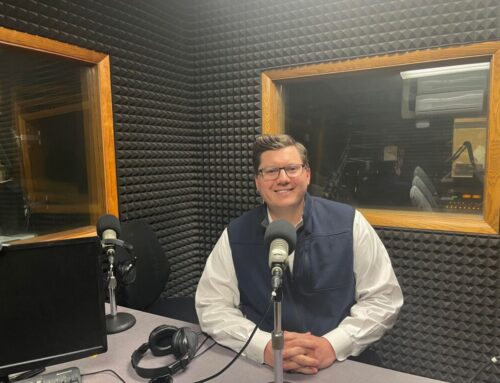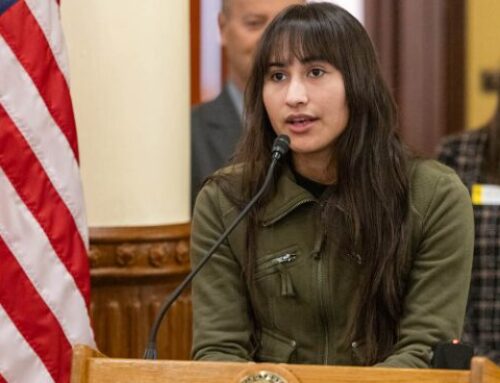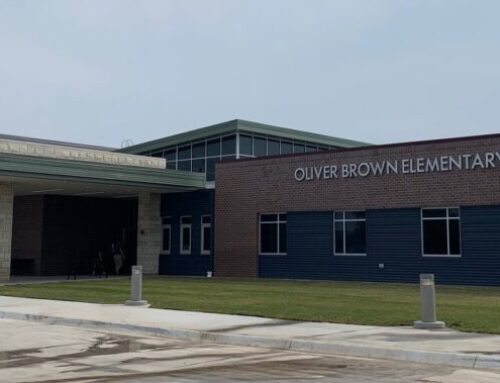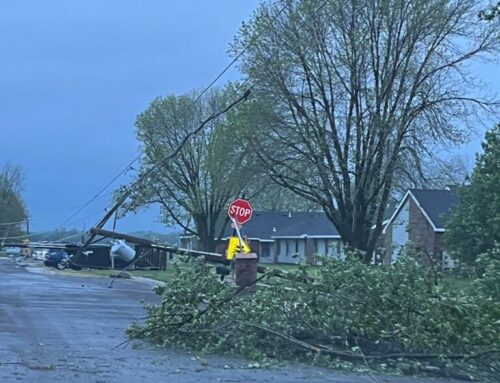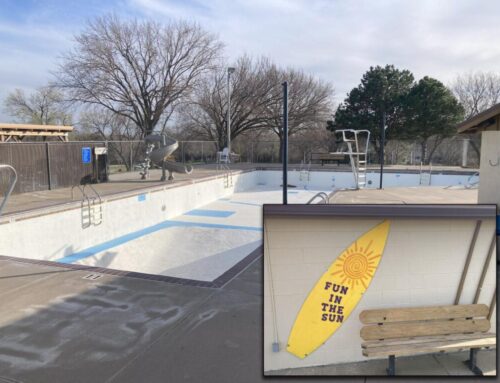Kansas State University leadership, faculty and students attended a community open forum in Manhattan Thursday morning, kicking off the first of a host of community visits around the State informing the university’s new strategic plan.
This academic year, President Richard Linton and others from K-State will travel to nine different regions around Kansas to listen and learn about their ideas on how the university can better serve their communities as well as strengthen existing bonds and partnerships.
“These community visits – you are the first, you are the guinea pig; you guys are the test, you are the experiment,” Linton said Thursday in the Manhattan Conference Center. “But also you’re right in the backyard, and I think that’s why it makes sense to be able to start this process in Manhattan, Kansas.”

Three more visits are planned this Fall in Dodge City, the Kansas City area and Salina with visits planned this Spring in Shawnee, Sedgwick, Crawford, Finney and Thomas Counties. The conversations from these nine communities and those to come will contribute to K-State’s strategic plan as it strives to position itself as a ‘Next-Generation Land-Grant University.’
“It’s really an exchange between Kansas State University and what we offer,” says Linton. “And our communities to be able to understand, as land-grant universities, what we need to be doing that we are doing and what we need to be doing that we’re not doing.”
Thursday morning started off with K-State representatives meeting with local community leaders in the Flint Hills Discovery Center prior to the open forum in the Conference Center at 8:30 a.m.
Community members were given the opportunity to comment on and ask questions about the university’s engagement with the community and plans for the future following some opening remarks by Kansas Leadership Center’s Dr. Tim Steffensmeier, students Kady Figge and Mark Estares, as well as Linton.
Conversation over the course of an hour touched on questions about ways to attract students and retain them in Kansas post-graduation, ways to elevate distance education amid changing learning environments and expectation, partnerships with non-profits and neighboring educational institutions such as community and tech colleges as well as Christian colleges, and the need to support students from underserved communities and specifically communities of color.
“I was incredibly pleased with the turnout,” Linton said following the forum. “I think that shows, when you have standing room only in a very large room, how important we are to the community and I think it also shows hope for the future.”
He says this first forum proved a learning opportunity as well, saying they didn’t expect the level of engagement they received from the community.
“You plan things to go out in a very systematic way, but you just kind of evolve as the program happens,” Linton says. “There’s already things that we’re thinking about about how to change the next one to make it even more seamless.
“But I think the stars of the show were our students – the most important thing about what we were trying to do and to show was this is what we create at Kansas State University [and]we’re super proud of it.”
Following the forum, student leaders and administrators will be making stops throughout the community culminating in a 6 p.m. meeting with prospective and current students, alumni and their families on campus.
Included on the list are visits with the Net Positive Studio in Ogden and the SAVE Farm in Riley, conversations at the Pottawatomie County EMS facility in Wamego and the Flint Hills Breadbasket on Manhattan’s Yuma Street, as well as engagements on food security needs at the Northview Learning Garden and the entrepreneurial ecosystem at the CivicPlus building.
Students will play a big role throughout the day, including Estares and Figge. Estares, a master’s student in accountancy and Junction City native, says being engaged with the community has been an important part of his experience at K-State.

“One organization I’m very passionate about is the Multicultural Business Student Association – our mission is to equip our students with the resources and skills necessary to be able to succeed in the workplace,” says Estares. “Helping people that may look like me or have shared the same experiences as me is very important to me in making sure that they can succeed and hopefully get a full-time job.”
Figge is a junior in agricultural communications and journalism, hailing from Onaga in Pottawatomie County, and says K-State has been a part of her life since it began.
“Being able to be engaged in the community is a really great experience and opportunity because this community raised me and I have a lot to be thankful for,” Figge says. “I want to be able to give back in any way I can.”
Linton wrote in a May post in K-State Today that they anticipate the new strategic plan will be in place by July of 2023, with implementation commencing thereafter.



